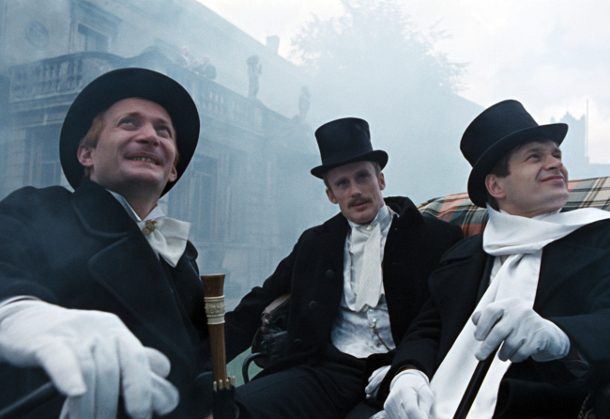Capitalism and poverty have been tackled through the mediums of literature and film in many different ways over the years. The most famous writers to broach the subject are Charles Dickens and Emile Zola, but there are countless examples from Eastern Europe as well (Fyodor Dostoevsky immediately springs to mind). Władysław Rejment won the Nobel Prize for Literature in 1924 and is one of the most famous authors to hale from Poland. His novel, The Promised Land, was adapted for film by Andrzej Wajda, one of the country’s most notable film makers and a leading light of the Polish School.
Karol Borowiecki (Daniel Olbrychski) is an ambitious young Polish nobleman who is a manager in a textile factory. Moritz Welt (Wojciech Pszoniak), an independent Jewish businessman. German Max Baum (Andrzej Seweryn) is heir to his father’s factory. Living in the Polish industrial city of , the trio are determined to set up a factory together. In a world of rampant capitalism, they face stern competition from other factory owner, but when there are rumours of an affair between Karol’s and Lucy Zucker (Kalina Jędrusik), her husband threatens to send their plans up in smoke.
Set in the 19th century, The Promised Land contrasts the opulent palaces of the wealthy with the filthy pollution-ridden streets inhabited by the destitute and diseased. The dangerous and dirty working conditions in the factories are contrasted with the affluent theatres and restaurants patronised by the rich. Wajda cleverly uses close-ups, vibrant colours and framing to highlight the grotesque nature of wealthy. The poor are depicted in different shades of austere. The Promised Land is a profound and powerful film, which at times feels almost Gilliam-esq and doesn’t take itself seriously, has a profound message.
The Promised Land is released on DVD by Second Run on November 10.














No Comment